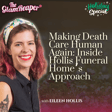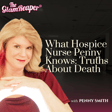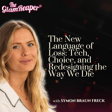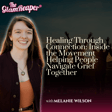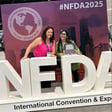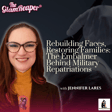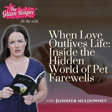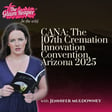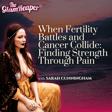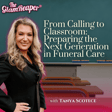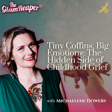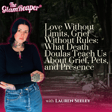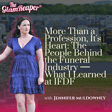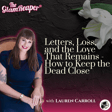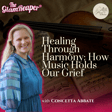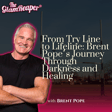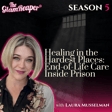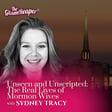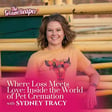
Comics, Corpses, and Curiosity: The Unexpected Life of a Death Professional
In this episode of The Glam Reaper Podcast, Jennifer Muldowney chats with Allison Danger—a seasoned embalmer, funeral director, and now a Death Studies master’s student—about her deeply personal and evolving relationship with death care. From the front lines of embalming to the quiet pages of academic research, Allison shares how a life-changing moment pushed her to dive deeper into understanding death, not just professionally, but personally.
They talk about what it’s like juggling work, motherhood, and studies, and how Allison still finds time for creativity—whether it’s writing graphic novels, podcasting, or exploring big questions around humanity and grief through storytelling. Her passion for education shines through as she shares why she believes death needs to be part of everyday conversations, especially for younger generations.
The two also dig into the digital future of memorialization, including AI and legacy tech, and the emotional weight that comes with preserving memories in such new ways. It’s a thoughtful, raw, and inspiring conversation that reminds us how death can be a space for growth, connection, and even creativity.
Key Topics:
-From funeral work to deeper understanding of death
-Turning personal loss into purpose
-Balancing life with compassion and growth
-Bringing honest talks about death to light
-How tech shapes grief and connection
Quotes from the episode:
“We’re really under-serving ourselves by not talking about death.”
-Allison Danger
“I've realized that I'm less about the academic side of things than I am about the practicality of it.”
-Jennifer Muldowney
Timestamp:
[00:00] Podcast Intro
[00:46] Allison Danger opened up about her evolution from years in embalming to pursuing a master’s in Death Studies.
[08:41] With honesty and curiosity, Allison shared how her fascination with biology and her desire for meaning steered her away from traditional medicine and toward a calling that blends science, care, and research in death care.
[15:27] She spoke candidly about the need to reclaim creativity just for joy, how the things we love can so easily become just another task if we don’t protect them.
[17:22] In a powerful reflection, Allison reminded us that healing and purpose often show up in unexpected places. And that even in grief and loss, there’s room for connection and hope.
[18:11] Through her work in graphic novels, Allison uses storytelling to explore profound questions about identity and existence, bringing depth and emotion to complex themes like transhumanism and digital legacies.
[22:39] Allison raised powerful questions about the rise of AI in memorialization, reflecting on what it really means to preserve someone’s digital self—and whether, in doing so, we might be avoiding the very grief that helps us heal.
[25:30] Outro
Connect with Allison Danger:
Website- allisondanger.com
Instagram - @allisondangerous
X- @allydangerous
Connect with Jennifer/The Glam Reaper on socials at:
Instagram - https://www.instagram.com/jennifermuldowney/
TikTok - https://www.tiktok.com/@therealglamreaper
YouTube - https://www.youtube.com/@TheGlamReaperMuldowney
LinkedIn - https://www.linkedin.com/in/jennifermuldowney/
Facebook Page - https://www.facebook.com/MuldowneyMemorials/
Email us - glamreaperpodcast@gmail.com
Shop Merch - https://the-glam-reaper.printify.me/products
Listen to The Glam Reaper Podcast on Apple Podcasts:
https://podcasts.apple.com/us/podcast/the-glam-reaper-podcast/id1572382989?i=1000525524145
The Glam Reaper® AMAZON Storefront - https://amzn.to/4hObpOh
